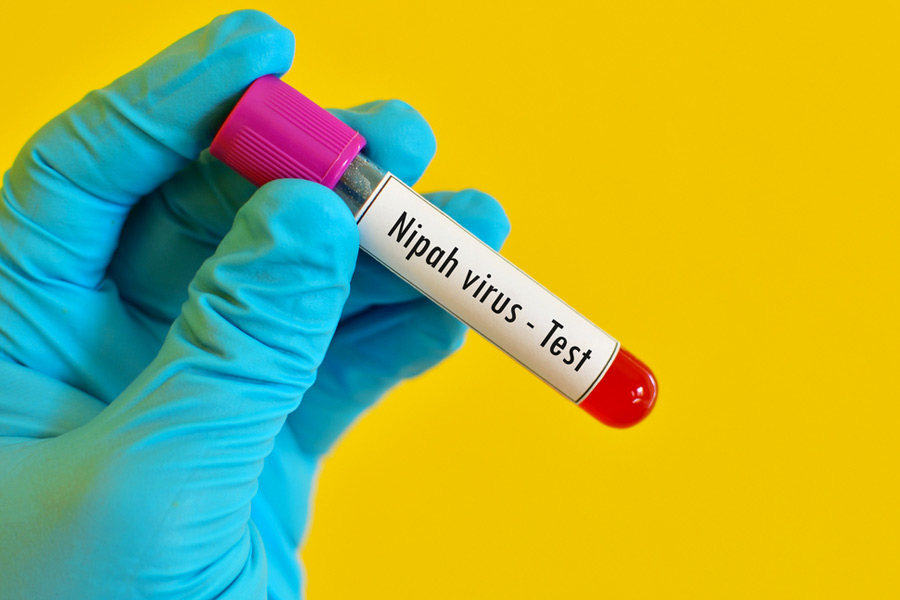A 42-year-old woman from Valanchery in Kerala's Malappuram has recovered from a Nipah virus (NiV) infection after slipping into a coma and battling for her life for around six months.
The NiV is a highly contagious pathogen that can be transmitted from animals to humans and causes death in 40-75 per cent of infected humans.
Nipah infection is commonly caused by the consumption of fruits contaminated by bat saliva or urine. Kerala has seen 26 deaths caused by the Nipah virus since 2018. However, virological examination of bat-bitten fruits has yielded negative results, leaving the doctors perplexed.
The woman, whose name the newspaper is withholding owing to the contagious nature of the disease, has now started talking and has been shifted from the Government Medical College in Manjeri to a neuro-rehabilitation centre at Kozhikode Government Medical College.
Doctors are still unable to understand how she contracted the virus.
The woman was initially admitted to E.M.S. Memorial Cooperative Hospital & Research Centre Ltd at Perinthalmanna in Malappuram, where she was in a coma for three months.
After testing positive for NiV, the homemaker was shifted to the hospital in Manjeri on July 4, where she remained unconscious for more than two months.
Dr Prabhudas, superintendent of the Manjeri medical college, told The Telegraph that the woman now needed four months of neuro-rehabilitation treatment to stimulate her nervous system.
"She developed seizures and had unstable blood pressure. We had provided an isolation room and also an alpha bed, which costs almost ₹1 lakh. She started speaking only two weeks ago and is taking normal food through a tracheostomy tube. A valve has been inserted to help her speak. We still don't know how she got infected,” Dr Prabhudas said.
The physiotherapy department at the Kozhikode Medical College has been entrusted with providing her with the neuro-rehabilitation care.
The woman’s husband is a daily wage labourer and they have three children, including two college students.
“I’ve been unable to go to work for the last six months and am finding it difficult to make ends meet. Several teams from both the Centre and state had visited us to find out how my wife had contracted the Nipah virus, but to no avail. Our house is in a hilly area where we have a few trees for bats to live in. She did not eat any fruits contaminated by bats,” the husband told this newspaper.











